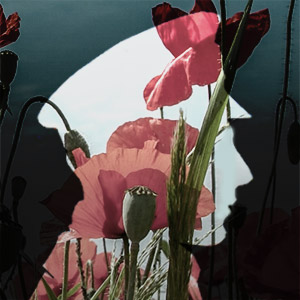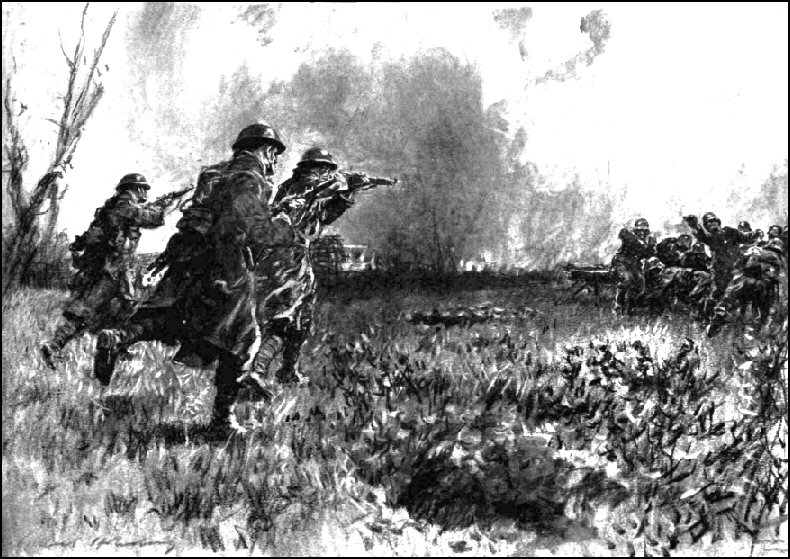
When Joshua Ward was born in spring 1891 at Chickenley Lane, Earlsheaton his father Fred, a wool spinner, was aged 36 and his mother, Eliza, was 34 years old. Joshua had two brothers and three sisters. Fred Ward was born on the 5th April 1855 in Birstall and married Eliza Ann Taylor on 10 October 1880 in Batley. Eliza Ann was born on 1 February 1857 in Wellington, Somerset. Their first child was born at Northallerton in 1881. A second child was born in 1883 at Earlsheaton and two more children were born in Ossett in the mid 1880’s. By 1891 the family were living at Chickenley Lane, Earlsheaton where it is likely that Joshua was born. The couple had seven children born to their marriage but sadly one child died before 1911.
By 1901 the family, including nine year-old Joshua, were living in Ravensthorpe. By 1911, once again the family had moved and were living at 28, Back Ryecroft Street, Ossett. Joshua, aged 19 years, worked as a woollen piecer. His father, Fred Ward, died in spring 1912 at the age of 57. The family were still living at Ryecroft Street in 1919, but it seems likely that his widowed mother, Eliza Ann, had moved to Beatson Street, Dewsbury in the early 1920s. By 1939 she was living at Vulcan Road, Dewsbury. Eliza Ann died in summer 1941.
Joshua Ward’s army service record has not survived, but it is known that he enlisted at Dewsbury, possibly in late 1915, in the 1/4th King’s Own Yorkshire Light Infantry (K.O.Y.L.I.) His medal card states that he was posthumously awarded the Victory and British medals. His 1/4th K.O.Y.L.I. regimental numbers were 6348 and, later, 202884. The 1914-15 Star medal was not awarded, indicating that he did not serve overseas until on or after 1st January 1916.
The 1st/4th Battalion of K.O.Y.L.I. was formed in August 1914 at Wakefield as part of the 3rd West Riding Brigade, West Riding Division. The battalion moved on mobilisation to Doncaster and then in November 1914 to Gainsborough. They moved on to York in February 1915 and on the 12th of April 1915 landed at Boulogne in France. On the 15th of May 1915 the formation became 148th Brigade, 49th (West Riding) Division.
Joshua Ward was killed in action on the 13th of April 1918 in the defence of the village of Neuve Eglise in Flanders, Belgium. He was 26 years of age.
On Friday 12th of April 1918, the Germans had got over the Lys at Merville and had reached to outskirts of the Forest of Nieppe in front of the town of Hazebrouk, however a fierce resistance put up by the British 31st Division had denied both the forest and the town to the enemy. During that day the Germans had also begun a new thrust towards Mount Kemmel in the south of the Ypres Sector. The greatest weight had been thrown at the defences in front of Neuve Eglise.
Before WW1, Neuve Eglise (now called Nieuwkerke), was an insignificant Belgian village to the north of Armentieres, on the road leading to the town of Kemmel. In April 1918, at this crucial stage of the war on the Western Front, the village had been defended by elements of the 148th (3rd West Riding) Brigade of the Territorial 49th (West Riding) Division, consisting of the 1st/4th Battalion of the King’s Own Yorkshire Light Infantry and the 1st/4th (Hallamshire) Battalion of the York and Lancaster Regiment, in company with the 2nd Worcesters. The Brigade, in trenches to the north of the village, had been under constant enemy artillery bombardment and enemy infantry harassment throughout the eleventh of April and early the next day the Germans had launched a concentrated infantry attack which had succeeded in forcing an entry into the southern part of the village.

Above: Fighting at the village of Neuve Eglise (now Nieuwkerke) in April 1918.
Ejected from their positions by this assault, during the early hours of the following day, Saturday the 13th of April, the West Yorkshiremen together with the Worcesters, had mounted a counter attack ‘with great spirit’, which after a ferocious bout of street fighting, had managed to drive the enemy out of the village and back some 150 yards or more, the K.O.Y.L.I. capturing seventeen German infantrymen in the village Y.M.C.A. in the process.1
Private Joshua Ward was killed in action on the 13th April 1918. Another Ossett man, Alfred Bilbrough, also serving in the 1/4th KOYLI, was killed on the same day in the same action.
Both men are remembered on Panel 108-111 on the Tyne Cot Memorial, West-Vlaanderen, Belgium. The Tyne Cot Memorial to the Missing forms the north-eastern boundary of Tyne Cot Cemetery, which is located 9 kilometres north east of Ieper town centre, on the Tynecotstraat, a road leading from the Zonnebeekseweg (N332).
The Tyne Cot Memorial is one of four memorials to the missing in Belgian Flanders which cover the area known as the Ypres Salient. Broadly speaking, the Salient stretched from Langemarck in the north to the northern edge in Ploegsteert Wood in the south, but it varied in area and shape throughout the war. The Tyne Cot Memorial now bears the names of almost 35,000 officers and men whose graves are not known.
Joshua’s record of the distribution of his effects at death tell that his unexpended Army allowances of £9 18s 9d were left to his widowed mother, Eliza Ann. His War Gratuity on the other hand appears to have been left to another woman whose name is illegible, but may be Mrs. Glover?

Above: Joshua Ward. UK Army Registers of Soldiers’ Effects 1901-1929.
We are grateful to the Facebook Group “Ossett Through The Ages” (OTTA) for bringing Joshua Ward to our attention.
References: